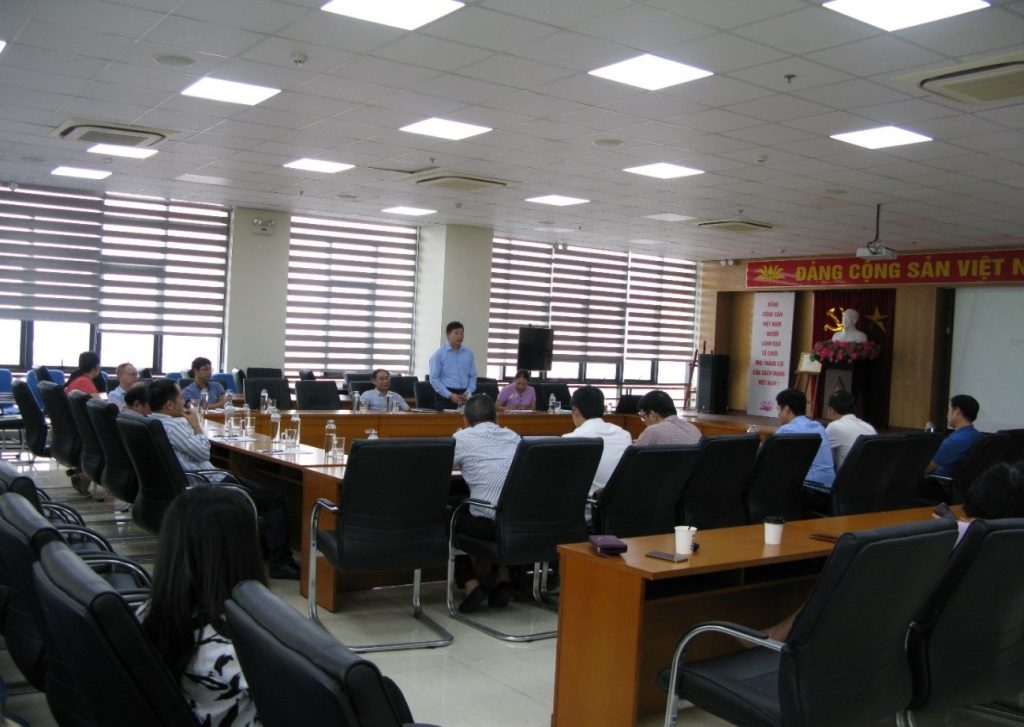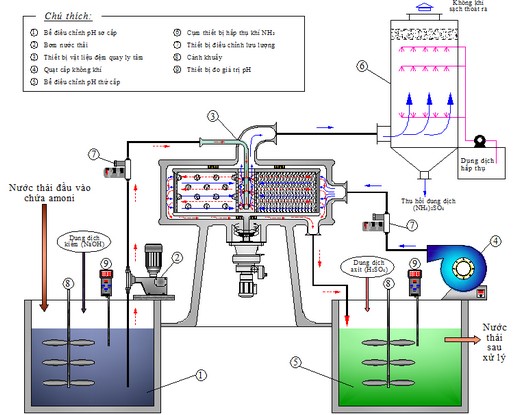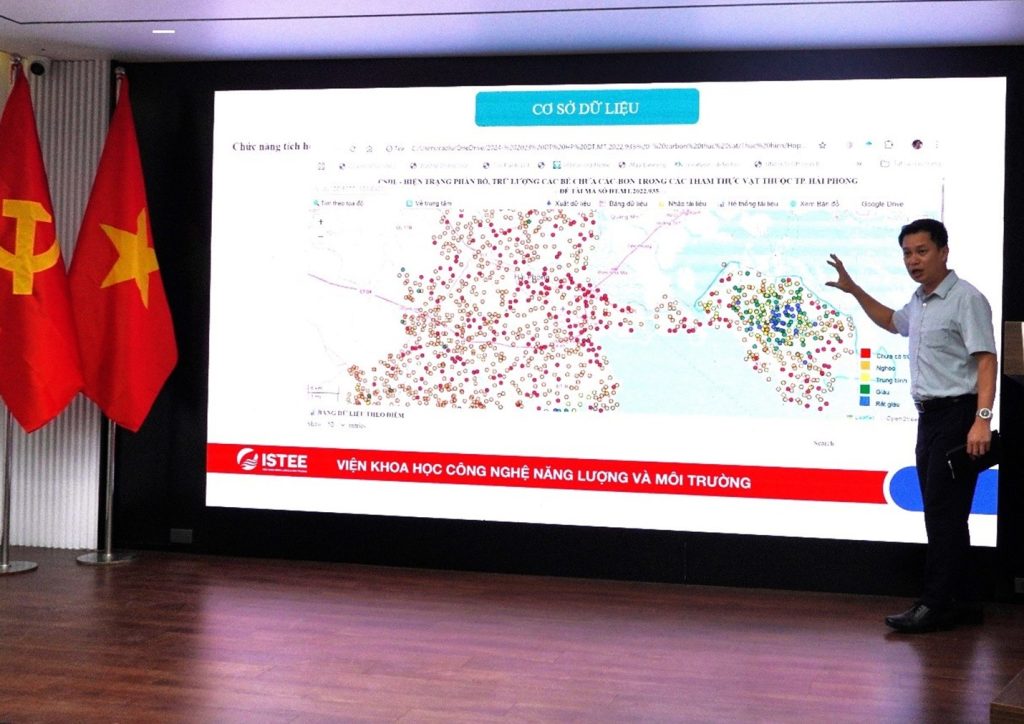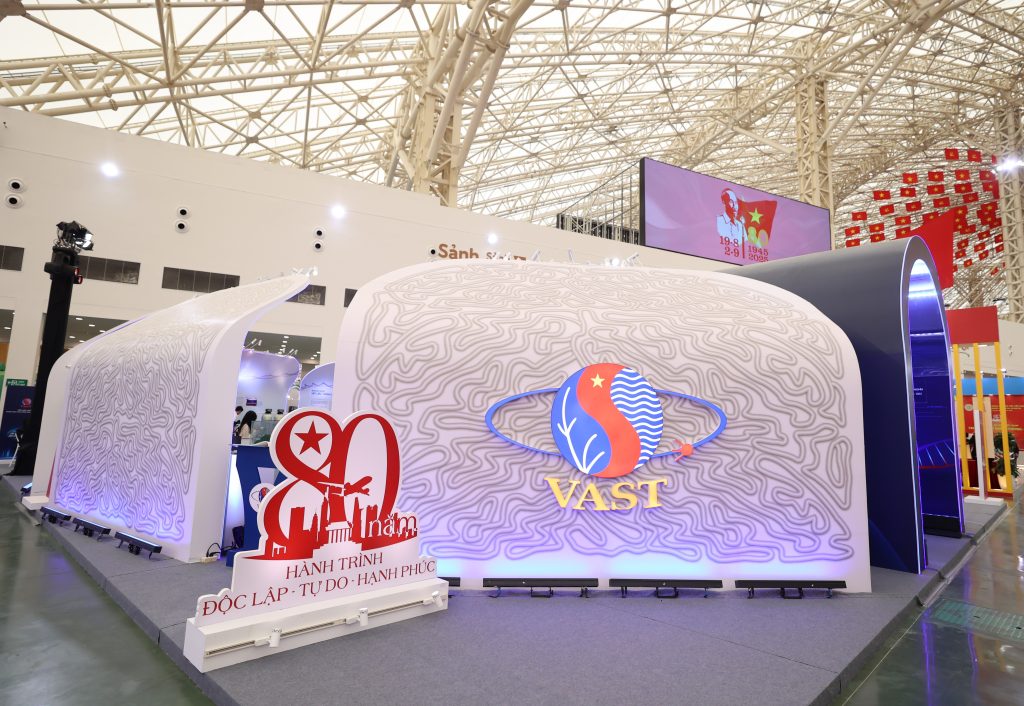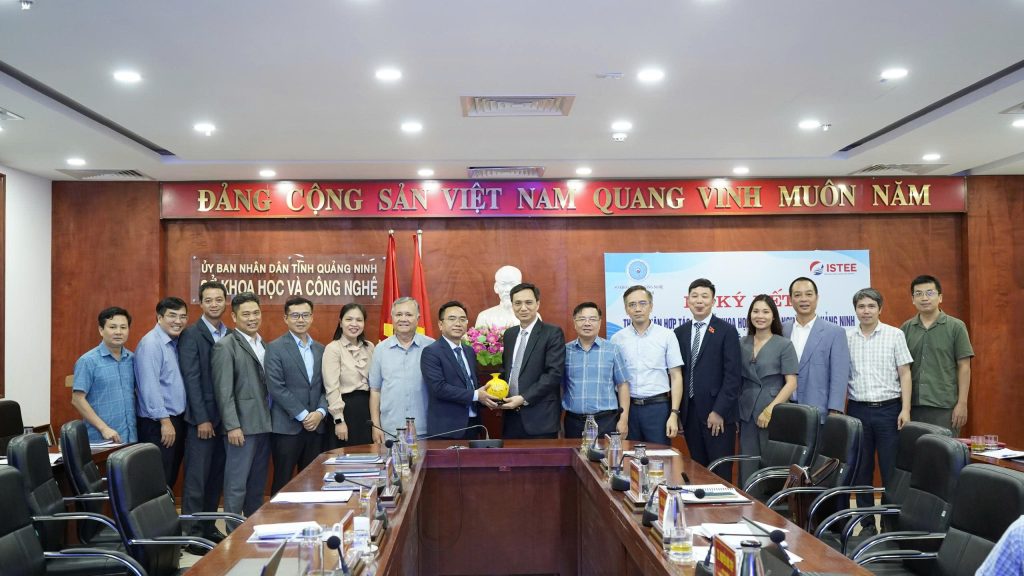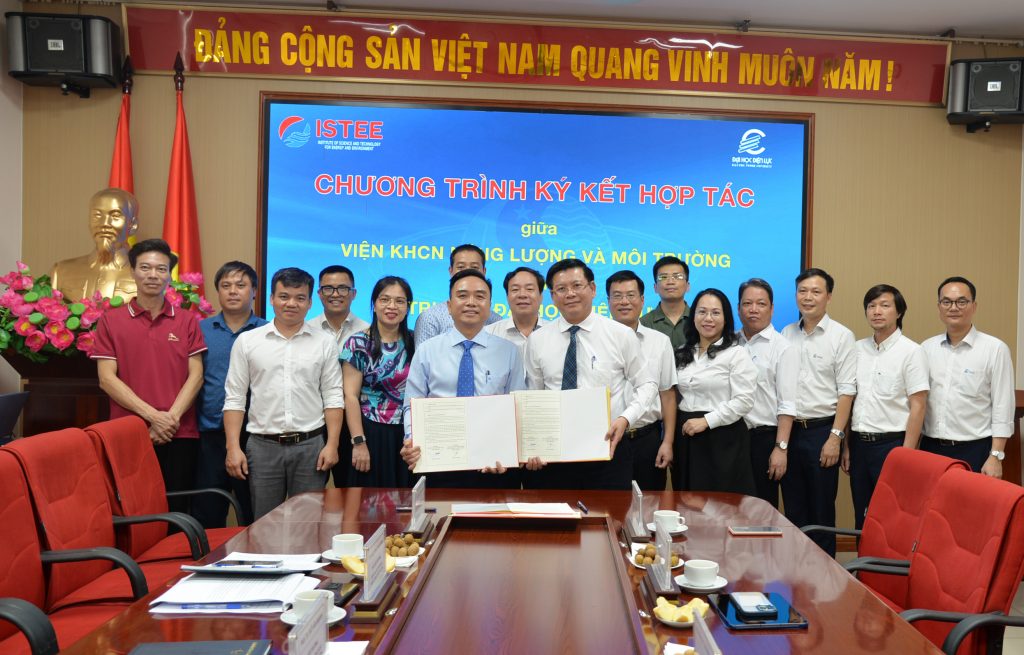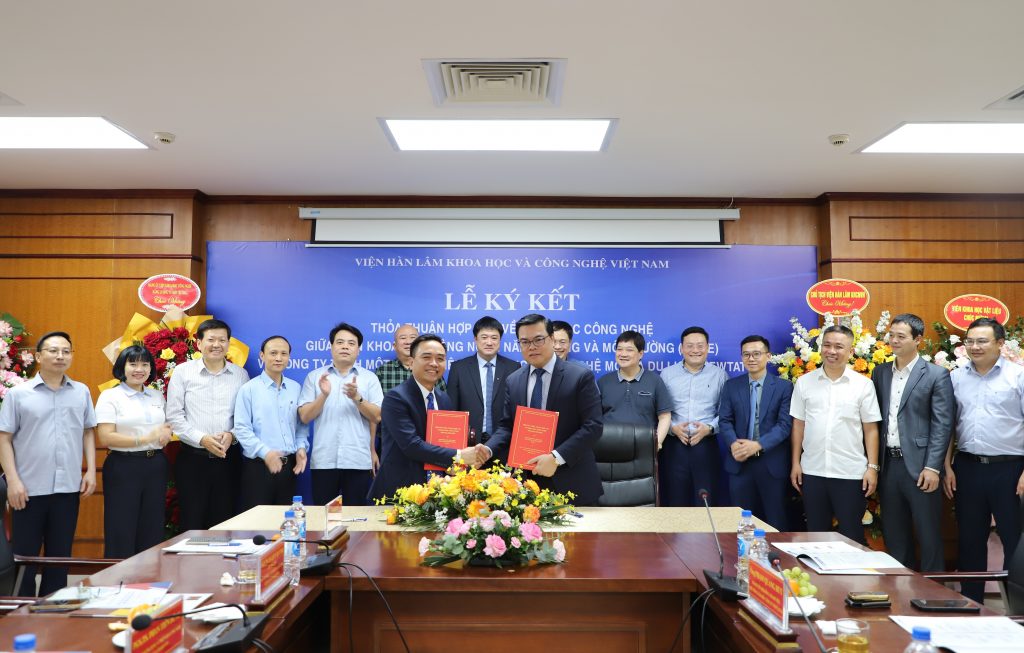No. 57-NQ/TW, Hanoi, December 22, 2024, CENTRAL EXECUTIVE COMMITTEE RESOLUTION
OF THE POLITICAL BUREAU ON BREAKTHROUGHS IN THE DEVELOPMENT OF SCIENCE, TECHNOLOGY, INNOVATION,
AND NATIONAL DIGITAL TRANSFORMATION
Summary of main content
I- GUIDING PRINCIPLES
- The development of science, technology, innovation, and national digital transformation is the foremost critical breakthrough and the primary driving force for the rapid advancement of modern productive forces, the completion of production relations, the transformation of national governance methods, economic and social development, the prevention of stagnation risks, and the nation’s breakthrough growth towards prosperity in the new era.
- Strengthening the Party’s comprehensive leadership and mobilizing the collective strength of the entire political system, businesses, entrepreneurs, and the people in advancing science, technology, innovation, and national digital transformation. This is a profound and comprehensive revolution across all sectors, requiring determined, consistent, synchronized, and long-term implementation through breakthrough, revolutionary solutions. People and businesses are at the center, as key stakeholders, resources, and driving forces; scientists are pivotal contributors; and the State plays a leading role in facilitating and promoting the most favorable conditions for the development of science, technology, innovation, and digital transformation.
- Institutions, human resources, infrastructure, data, and strategic technologies are the core focus areas, with institutions serving as the prerequisite, requiring completion and advancement ahead of other aspects. Legislative reforms must balance regulatory oversight with innovation encouragement, eliminating the mindset of “prohibit what cannot be managed.” Priority should be given to ensuring high-quality human resources for science, technology, innovation, and digital transformation, with special mechanisms and policies for talent development. Infrastructure development, particularly digital and technological infrastructure, should adhere to the principles of “modernity, synchronization, security, safety, efficiency, and waste prevention”. Maximizing the potential of data is crucial – transforming data into a key production resource, accelerating the development of big data, data industries, and the digital economy.
- Rapid yet sustainable development, with a step-by-step approach to technological self-sufficiency, especially in strategic technologies. National resources should be prioritized for science, technology, innovation, and digital transformation. Vietnam must maximize its intellectual potential while quickly absorbing, mastering, and applying advanced global scientific and technological achievements. The country should accelerate applied research, prioritize fundamental research, and move toward technological self-reliance and competitive advantage in key areas where Vietnam has needs, potential, and advantages.
- Safeguarding national sovereignty in cyberspace, ensuring cybersecurity, data security, and information safety for organizations and individuals – this is a consistent, inseparable requirement throughout the development of science, technology, innovation, and national digital transformation.
II- OBJECTIVES
- By 2030
– Vietnam’s scientific, technological, and innovation potential and expertise will reach an advanced level in key areas, ranking among the leading upper-middle-income countries. The technological capability and innovation capacity of enterprises will be above the global average, with certain fields achieving international standards. Vietnam will be among the top three countries in Southeast Asia and the top 50 globally in digital competitiveness and e-Government development index. It will also be among the top three in Southeast Asia for AI research and development, as well as a key regional hub for certain digital technology industries where Vietnam has a competitive advantage. At least five digital technology enterprises will reach the level of advanced economies.
– Economic contributions: The Total Factor Productivity (TFP) contribution to economic growth will exceed 55%, and the proportion of high-tech exports will be at least 50% of total export value. The digital economy will contribute at least 30% of GDP. The adoption rate of online public services by citizens and businesses will exceed 80%, and cashless transactions will account for 80% of total transactions. Over 40% of enterprises will engage in innovation activities. Science, technology, and innovation will play a crucial role in shaping Vietnamese cultural, social, and human values, contributing to maintaining a Human Development Index (HDI) above 0.7.
– Investment in R&D and digital transformation: R&D expenditure will reach 2% of GDP, with more than 60% funded by the private sector. At least 3% of annual state budget expenditure will be allocated to science, technology, innovation, and digital transformation, increasing over time in line with development needs. The science, technology, and innovation system will be restructured to ensure efficiency, integrating research, application, and training. The research workforce will reach 12 researchers per 10,000 people, with 40–50 science and technology organizations ranked at regional and global levels. The annual growth rate of international scientific publications will be 10%, while patent applications and grants will increase by 16–18% annually, with a commercialization rate of 8–10%.
– Digital infrastructure & emerging technologies: Vietnam will establish state-of-the-art, high-capacity, ultra-broadband digital infrastructure, comparable to advanced economies. The country will gradually master strategic and digital technologies such as Artificial Intelligence (AI), the Internet of Things (IoT), Big Data, cloud computing, blockchain, semiconductors, quantum technology, nanotechnology, 5G & 6G mobile communications, and satellite communications, along with emerging technologies. Nationwide 5G coverage will be completed. Complete the development of smart cities for centrally affiliated cities and selected provinces and cities that meet the necessary conditions. At least three leading global technology enterprises will establish headquarters, R&D centers, and manufacturing operations in Vietnam.
– State administration from the central to local levels operates in a digital environment, ensuring seamless connectivity and smooth functioning among agencies within the political system. National and sectoral databases will be fully developed, integrated, and shared, facilitating efficient use of digital resources and data, including the establishment of a national data exchange platform. Vietnam will achieve advanced levels in digital government, digital economy, digital society, digital citizenship, and digital cultural industries. Vietnam ranks among the leading countries in cybersecurity, data security, and data protection.
- Vision for 2045
Science, technology, innovation, and digital transformation will be firmly developed, contributing to making Vietnam a high-income developed country. The digital economy will account for at least 50% of GDP. Vietnam will establish itself as a regional and global digital technology hub. The country will rank among the top 30 globally in innovation and digital transformation. The proportion of digital technology enterprises will be equivalent to that of developed countries. At least 10 world-class digital technology enterprises will emerge. Vietnam will attract at least five leading global technology organizations and enterprises to establish headquarters, R&D centers, and production facilities in the country.
III- TASKS AND SOLUTIONS
- Enhance awareness, breakthrough in mindset transformation, establish strong political determination, and decisively lead and direct efforts to create new momentum and enthusiasm across society for the development of science, technology, innovation, and national digital transformation
- Urgently and decisively improve the institutional framework; eliminate all outdated mindsets, perceptions, and barriers that hinder development; turn the institutional framework into a competitive advantage in developing science, technology, innovation, and digital transformation
- Strengthening investment and improving infrastructure for science, technology, innovation, and national digital transformation
- Developing and utilizing high-quality human resources and talents to meet the demands of science, technology, innovation, and national digital transformation
- Accelerating digital transformation, applying science, technology, and innovation in government operations to enhance national governance efficiency, state management effectiveness across sectors, and ensure national defense and security
- Strongly promoting science, technology, innovation, and digital transformation in enterprises
- Enhancing international cooperation in science, technology, innovation, and digital transformation
IV- IMPLEMENTATION
- Establish the Central Steering Committee for Science, Technology, Innovation, and Digital Transformation Development, chaired by the General Secretary of the Central Committee of the Communist Party of Vietnam. Form the National Advisory Council for Science, Technology, Innovation, and Digital Transformation, with participation from both domestic and international experts.
- The Party Delegation to the National Assembly shall lead and direct the review and completion of legislation on science, technology, innovation, and digital transformation. Enhance supervision to ensure effective implementation as stipulated by regulations.
- Coordinate with the Party Delegation to the National Assembly to fully institutionalize the policies and guidelines outlined in this Resolution and allocate adequate resources for implementation, with fundamental completion targeted for 2025.
- The Vietnam Fatherland Front and socio-political organizations shall lead and direct the formulation of programs and plans to guide and mobilize the public in implementing the Resolution. Promote the role of supervision and social criticism, and participate in the development of laws, mechanisms, and policies for advancing science, technology, innovation, and digital transformation.
- The Central Propaganda and Education Commission shall take the lead in coordinating with relevant agencies to guide the thorough implementation of the Resolution. Strengthen communication efforts to promote awareness of its content.
- The Office of the Central Committee of the Communist Party shall coordinate with the Central Economic Commission to monitor, inspect, and evaluate the implementation results of the Resolution. Report on progress every six months to the Central Steering Committee and the Politburo for further direction.
- The Institute of Science and Technology for Energy and Environment and the Quang Ninh Department of Science and Technology sign a cooperation program for the 2025–2030 period.
- Prime Minister visits the exhibition of Vietnam’s scientific and technological achievements
- When the Dugong dugon Return
- Sci-tech cooperation agreement signed between Institute of Science and Technology for Energy and Environment (ISTEE) and New Technology Application and Tourism Company Limited (NEWTATCO)
- Introduction to The Institute of Science and Technology for Energy and Environment





